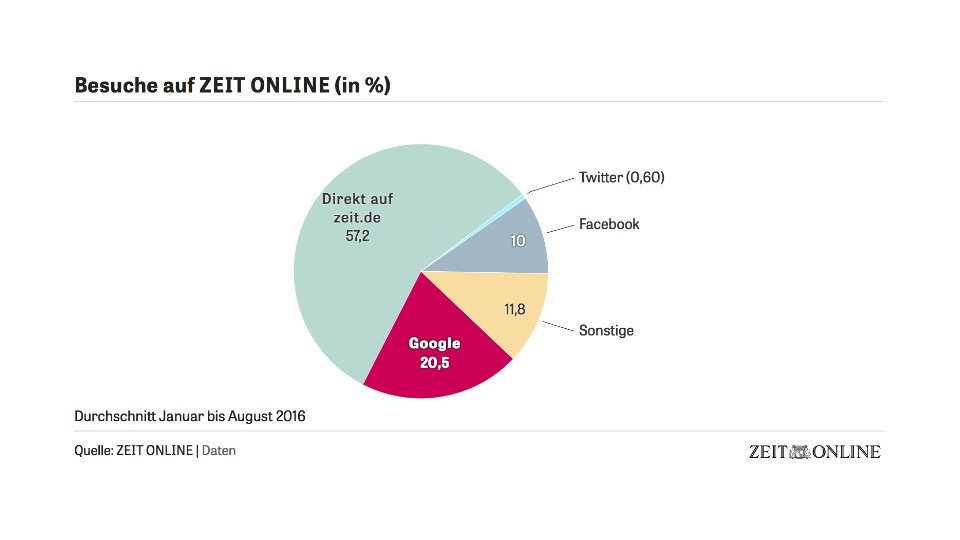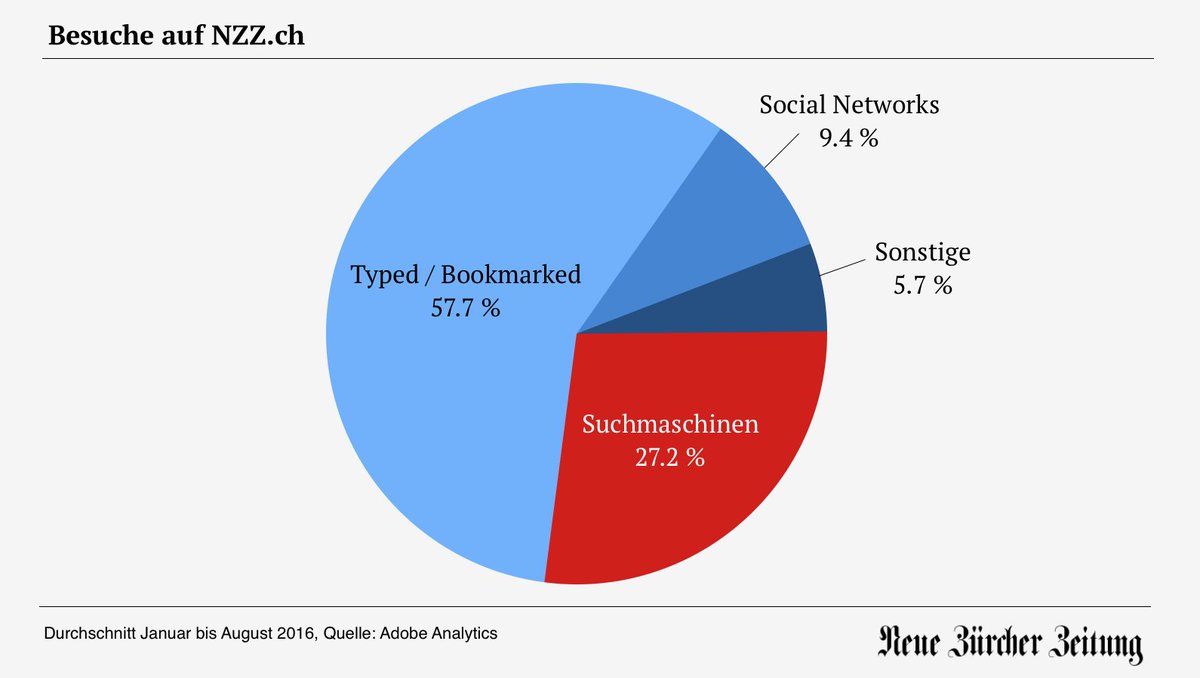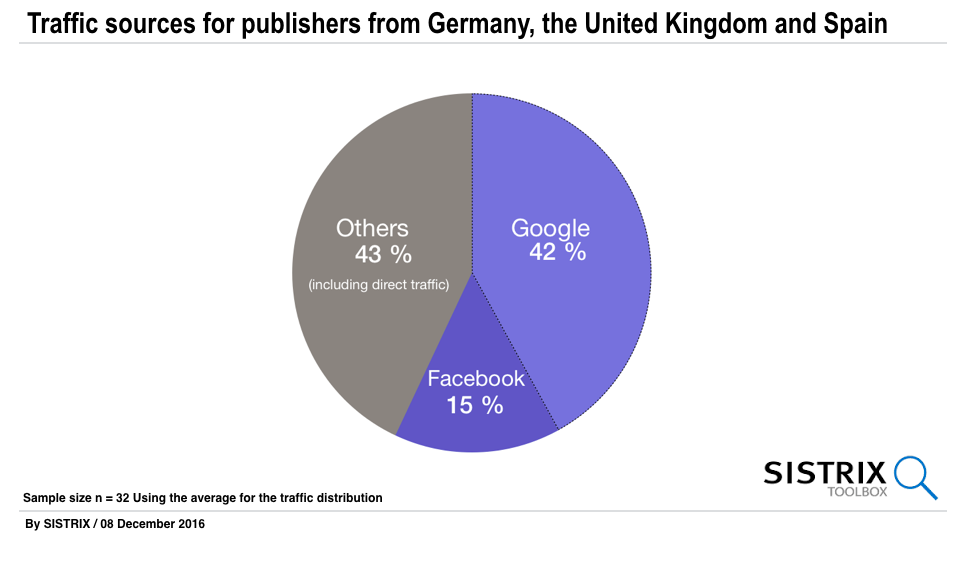In August 2015, Parsely.com – a content analytics platform – released an Authority Report where they suggest that Facebook has surpassed Google as a top referring source to publishers. But is this true? Many European publishers would disagree. Anyway, one and half years and a number of report updates later, it is quite surprising that, in many American and European institutions and sectors (universities, website owners, publishers, e.g.) this statement has been accepted as the only truth, which it is not.
No wonder, if you analyse how this statement has been received: The Nytimes.com writes: “Facebook eclipsed Google for the share of referral traffic to publishers“. Fortune.com begin their article with “Facebook is no longer just vying with Google but has overtaken it by a significant amount.“ And even Marketing Land writes “Facebook has landed the latest punch in the heavyweight battle with Google for referral traffic supremacy“.
Today, I would like to take a closer look at this study and offer additional numbers.
Parsely’s study is not statically representative
Although the reader only gets limited access to the entire study – you can actually just find 2 charts and some comments that Parsely made in different interviews – there is enough information to conclude that this study is not statically representative. Parsely used a biased sample, not a simple random sample.
If you want to know what New Yorkers earn for a living, you will get different results depending on whether you only ask the people working on Wall Street or the people working in Queens. For a representative study you need a larger set, which is made up for a randomly selected set of participants from all walks of life in New York. Each individual is chosen entirely by chance.
A simple random sample is meant to be an unbiased representation of a group. It is considered a fair way to select a sample from a larger population, since every member of the population has an equal chance of getting selected. Parsely only used their own publishing clients as their sample, which are, incidentally, clients who want to know how readers are responding to their content on social media.
Google is the most important traffic source in Europe
Europeans use Google much more than Americans do. Google’s market share in Europe is about 92% (in Germany, The United Kingdom and Spain it is about 95%). In these markets, where Google is so important, I asked editors and SEOs of the most well known news websites in Germany, the United Kingdom and Spain to share their incoming traffic data with us and these are the results:
Our sample size is n = 32 and it is important to note that this is also not a random sample, which makes our data not statistically representative either, just like Parsely’s study. Nevertheless, this shows that there are other numbers from other countries which completely contradict Parsley’s statement that Facebook has overtaken Google as most important traffic source.
While we had to sign contracts in blood, barring us from divulging the actual publishers, we want you to know that we are talking of many of the 800 pound gorillas of the industry here. This sample also makes it clear how European SEOs are leveraging the opportunities and potential that Google has to offer for their sites.
In case you are interested in taking a closer look at publicly available traffic values for European Newspapers, you can use the Twitter hashtag #TrafficLeaks. There, you are able to find a good amount of traffic data which publishers from Austria, Germany and Switzerland posting themselves. Here we have the number for one of the biggest news website in for the German language regions, Zeit.de:

I am pretty sure, all editors know the newspaper “Neue Zürcher Zeitung” from Switzerland well. This is the traffic source data for the NZZ.ch:

Conclusion
It might be true that Facebook is becoming more and more relevant, but it is also truth that Google still has a lot of potential to offer, when you are working with a well thought out SEO strategy and use this channel appropriately.
Social Media can very likely drive a lot of traffic to a new article for one day or even one week, depending on how much interest there is in a topic. A solid SEO strategy is an investment that can net you continuous traffic for years. Please do not get me wrong, both channels are extremely important. Google News and Social can give new content a much needed short-time push but Google is more suited to drive visitors to potentially all the pieces of content on your site.
Let me end this article by sending a big thank you to all the SEOs and editors who shared their traffic data with us. Without you, this article would not have been possible!
I hope you like it!

